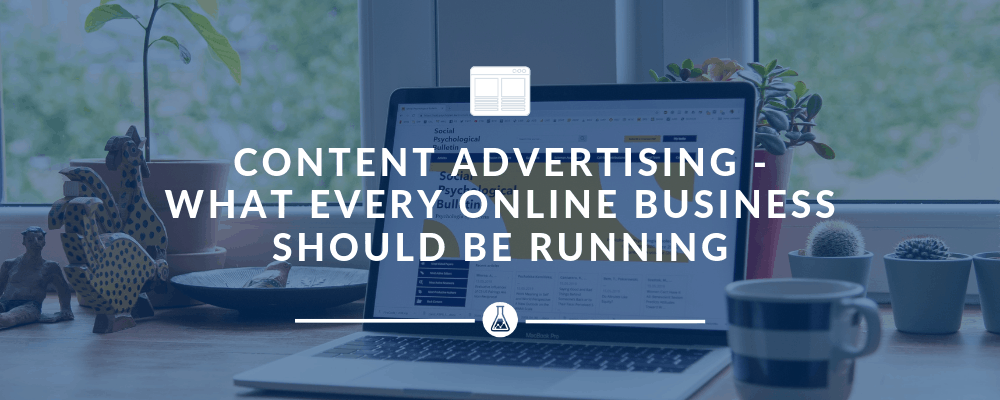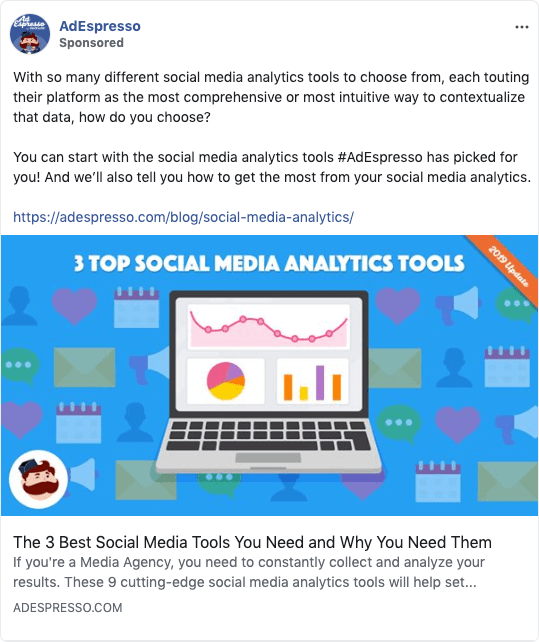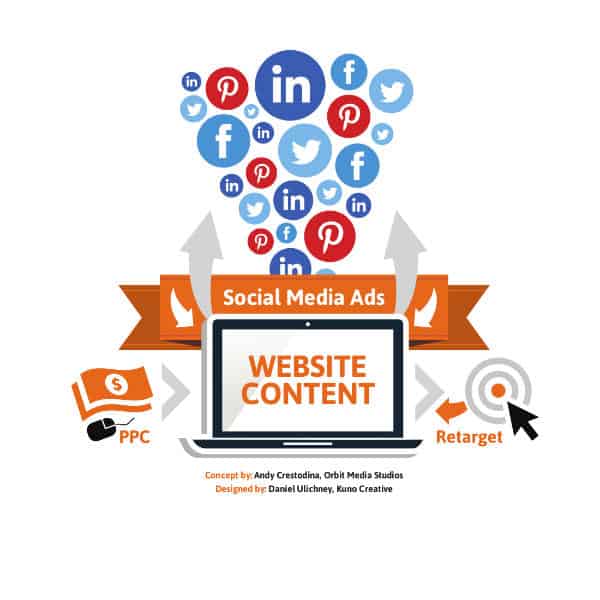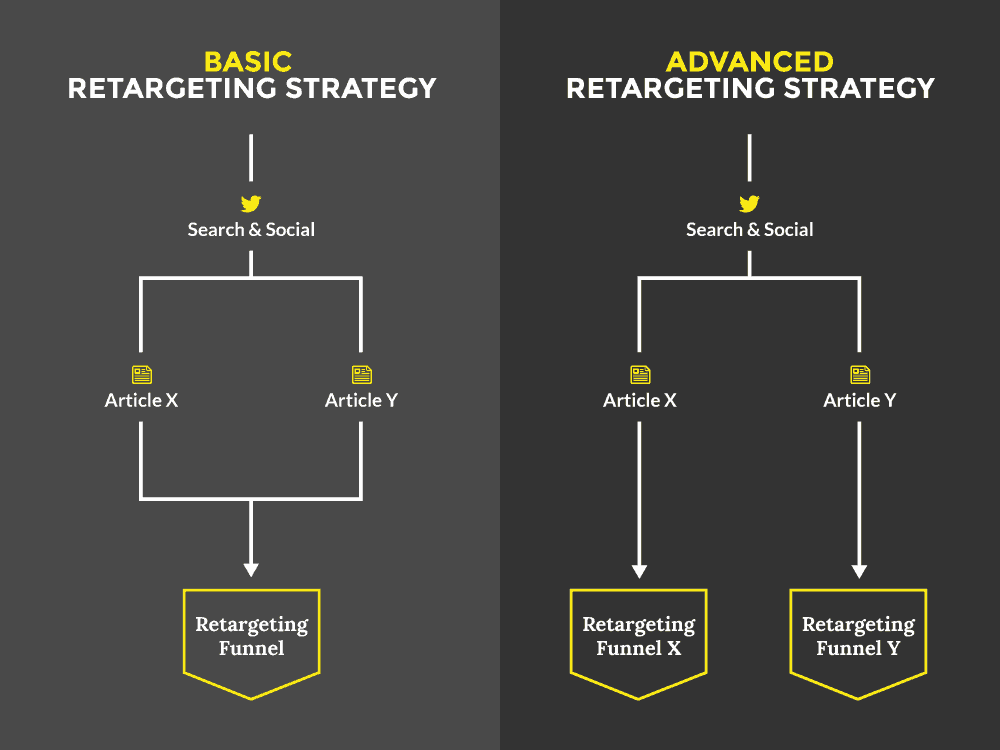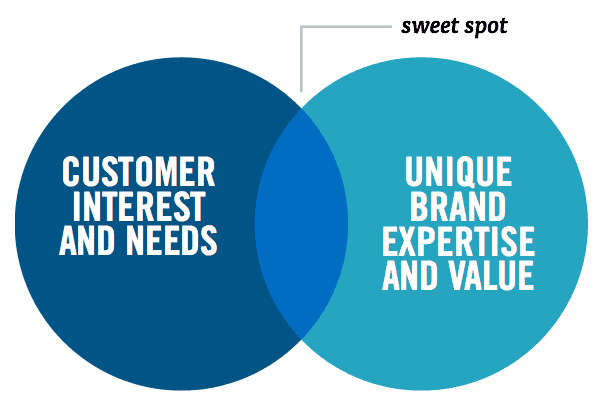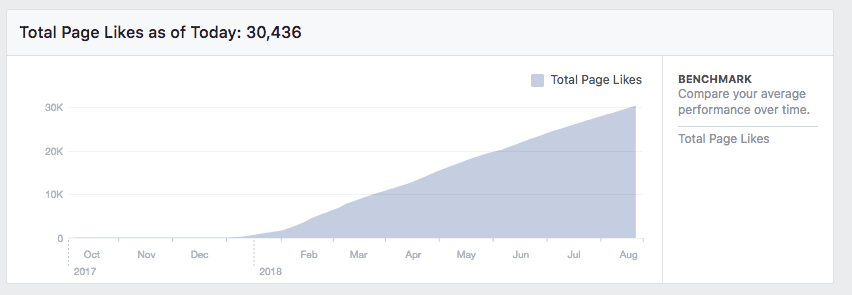When businesses think about ads, they think of sales, conversions and that all-important three-letter acronym: ROI.
After all, if you’re investing money in something, you should be aiming to make a return on your investment, right?
Not always…
…unless you’re aiming for short-term gains or run a ‘pop-up’ eCommerce store, usually hosted on Shopify or similar eCommerce platforms. If you’re hoping to turn a quick buck from the latest product trends available to drop-shippers, you’ll need to look at the bigger picture.
In this article, we’re going to take a deeper look at this catch-22 situation, how you can separate yourself from the crowd and what you can do to achieve serious long-term growth.
Let’s get into this!
Back Yourself, Always
If you’re in business, above all else, you have to believe in yourself.
It’s all well and good saying that your product is amazing, that you’ve built an awesome brand, that you’ve got a solution for a massive problem in your industry, but unless you actually back yourself, this is nothing more than hot air.
Before we go any further, I want to make something very clear to all of you:
Words mean nothing without action.
In the case of this article, this ‘action’ is spending your hard-earned cash on digital advertisements.
Whilst many of you will think this means highlighting the USP of your product/service, driving traffic to landing pages and making a boatload of sales, I’m going to talk about the importance of putting money behind something else — content advertising.
The Changing Digital Landscape
The world of digital marketing is always changing. There are a ton of reasons for this, but perhaps the most important to me (as a marketer) is the fact that people get wise.
People are clever. They quickly get bored of seeing the same thing over and over again, and more than anything they hate being asked to part with their money.
Social media newsfeeds are jam-packed with ads calling on users to buy, buy and buy again. And when people see the same thing over and over again, they become blind to it (aka ad blindness).
Ad blindness is a well-known problem to many digital marketers, particularly to anybody who has ever run display ads.
The fact is, it’s becoming increasingly competitive (and difficult) to grab the attention of your target audience. This has forced advertisers to resort to all kinds of crazy tactics, only to ask users to perform an action at the end – usually buy, sign-up or subscribe.
If this is all you’re doing, and you’re struggling to create campaigns that convert or generate a positive ROI, it’s time you changed. In other words, I’m advising you to:
Stop asking your target audience to do something for you and do something for them instead.
Paying to Help People
When you produce something that actually helps your target audience, your ad will instantly grab their attention.
This is without having to create a crazy opening to your video, click-bait headline or shocking image.
And the best way to do this is – drumroll, please – content advertising!
To many brands, the idea of paying to run ads that actually help people (ads promoting content) will sound completely alien. After all, you aren’t a charity! If you can’t see an immediate ROI from your ad spend, why should you even bother?
As an agency, we ALWAYS run content ads – ads that don’t ask for anything in return – and this has resulted in a ton of awesome benefits.
BTW: I’m not suggesting that you don’t run conversion (aka purchase-driving) or lead generation ad campaigns. Content ads will actually improve the performance of campaigns like this.
Content Ads Benefits
The benefit of pushing content on social ads means more than just trying to turn a cold visitor into a customer, which is becoming more and more difficult.
There are so many advantages that you might not have considered. Here are a few of the biggest:
1. Retargeting and Audience Segmentation
Before I lose all the readers who only think about ads from a financial standpoint, I need to talk about the financial advantages of running paid content campaigns.
As an advertiser, you should have a pixel (Facebook or Google) on your website.
BTW: A ‘pixel’ tracks the behaviors and actions of anybody who enters your website, giving you the opportunity to collect data, perform retargeting and create audiences to advertise to.
When you create content, you should target your ideal customer. This means writing about solutions to their biggest pain points, industry news, tips, tricks, basically anything that will attract the attention of somebody who has an interest in your industry.
This allows you to qualify everyone who visits, views or reads your content.
Think about it, if I write a blog about fishing, who do you think is going to read it?
The answer, I’d hope, is fishermen. By pushing my fishing content, I’ve given my pixel the opportunity to track their behavior, place them in an ‘audience’ and retarget them with more ads.
If I was marketing a fishing shop, my fishing content would’ve called out to fishermen who have an ACTIVE interest in the industry, not just somebody who has liked a fishing page 2 years ago. This way, I could run a retargeted conversion or lead gen campaign to JUST these people.
My content also gives me the opportunity to segment my audience by the pages/content they view.
For instance, I could create an article about the ‘5 Best Places to Catch Massive Carp in Europe’ and place all of the viewers of this page into a ‘viewed carp content’ audience, then retarget these people with carp fishing products.
This means specific ads targeting specific audiences, who have all demonstrated a recent interest.
I could then run content ads about fly fishing, sea fishing, etc. and retarget all of these people too.
This technique works wonders because :
- it only reaches people who already know your brand (through the content they viewed)
- has incredibly low cost (because audiences are small and highly-targeted)
- is easily scaled (by increasing the content budget, or building lookalike audiences).
2. Expert Positioning
Ok, enough of the fishing examples. Let’s look at content advertising from a slightly different angle.
If you are consistently sharing content that provides insights, tips, tricks, advice and helps around your industry, you position yourself as an expert in your industry.
Think about it like this – how much knowledge do you have about your industry? How much passion? How much hard work have you exerted? What mistakes would you avoid if you started all over again?
By sharing content that gives answers to these very important questions, you instantly become a trusted source of knowledge and expertise in the eyes of your target market.
Trust is incredibly important in today’s digital world. Anybody can start up a business from their bedrooms and many of them are only out to turn a quick profit with little care for their audience.
By becoming a trusted fountain of industry knowledge, you’ll benefit from:
- more referrals
- repeat customers
- larger social audiences
- increased inquiries
- less price sensitivity.
That’s right! If you’re a top dog in your industry, you can charge more and your prospects won’t even blink, because they actually want to purchase from you and you’re no longer in a price war with your competitors.
3. Social Proof
Social signals are extremely important to prospects. They want to see that you’re a reputable business who has a proven track record. The best way to achieve this is social proof.
BTW: Content advertising will help build social proof on social networks, one of the key access and research points for your prospects.
Good content will naturally generate likes, shares, and comments, as well as growing your social following.
But when you put money behind your content, the social engagement levels are limitless.
Many people use social networks as a way of researching businesses. If your business has 3 followers, 2 page likes and hasn’t posted anything in 6 months, it sends a dangerous signal to your customer.
At Einstein Marketer we always run content ads and this has resulted in us going from 0 to more than 50k page likes and followers on Facebook in a little over 18 months.
And because we boost our content (on a small-ish budget, that any of you could afford) our posts receive 250-2,500 shares EVERY SINGLE TIME.
This act of social sharing:
- increases our brand awareness (loads more people know about us)
- acts as a recommendation from peer-to-peer (instead of being business to customer)
- creates tons of social proof.
4. Enquiries, Sales and Lead Generation
When you add up all the collective benefits of running paid content campaigns, it results in inquiries, sales, and leads, without these audiences even seeing your conversion campaigns.
Think about it – if:
- you’ve heard of my business because you’ve seen all my content ads
- view it as an expert in the industry
- can see that loads of other people are loving the brand
- have been recommended to view my digital profiles via social shares from your friends and family
- have been carefully segmented for future content (and conversion) ads…
…the next time you’d like to purchase something in my industry, who are going to think of first?
(Fingers crossed) it’s me!
As an agency, we have been running strategies like this for years and we’re pretty damn good at it. We receive tons of inquiries, generate 1,000’s of sales and leads every week.
But we didn’t get there overnight.
It might take some time to feel the full benefits and it will depend on your industry, but when you get there, it’ll be worth it, trust me.
Conclusion - EVERY Online Business Should Be Running Content Advertising
Literally anybody can start an online business from their bedroom, it’s your job to separate yourself from the profiteers because this simply won’t cut it in the eyes of your customers anymore.
You need to be the brand that people actually want to work with. You need to become the business that doesn’t ask, before giving first.
Create valuable content that speaks to your target market, use it to qualify audiences, position yourself and generate social proof and you’ll start to see all those amazing benefits.
What do you think? Have you ever tried running a content campaign? Are you struggling to achieve any results?
Speak soon.

Joshua Barney
Josh is an award winning content marketer and a Director at Einstein Marketer, previously working as a content manager, freelance copywriter and marketer.
He writes, edits, proofs and strategises content for Einstein Marketer's agency and their clients, sharing the most successful tactics and strategies with his lovely audience. He hates writing in the third person, follow him on LinkedIn so he can get back to writing as himself.

